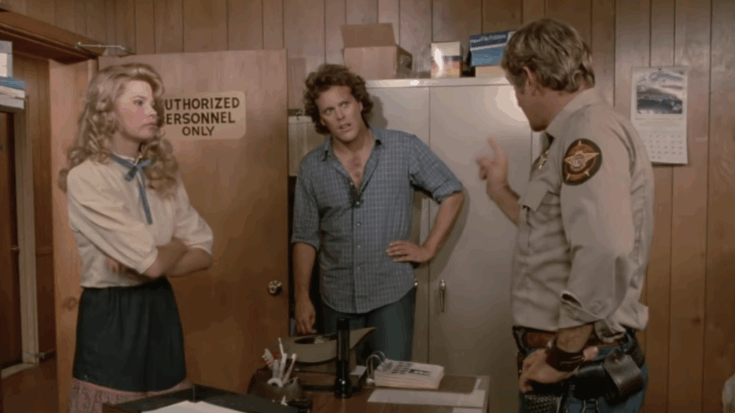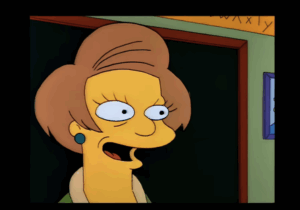Forgotten Faces: ’80s Actors Who Passed Away in 2025 Without Much Notice

via Murano / Youtube
The headlines in 2025 focused on the giants—names that shaped cinema in the 1980s and remained fixtures in pop culture for decades. News cycles paused for Val Kilmer, whose turn in Top Gun and later Willow defined an era of big-budget adventure. Tributes poured in for Gene Hackman as well, a performer whose presence grounded some of the decade’s most respected dramas. Their passings became moments of collective remembrance, reminders of how deeply the ’80s shaped the way we still watch movies today.
As the year went on, the list of losses only grew. Diane Keaton, Michael Madsen, Robert Redford, and David Lynch each left behind bodies of work that stretched far beyond the decade but remained closely tied to it. Every announcement triggered revisitations of their classic roles, interviews resurfaced, and fans traded memories across social media. The spotlight naturally followed them—actors whose influence stretched across generations and whose names rarely faded from conversation.
But the industry also said goodbye to many performers whose careers ran parallel to those household names, even if they never reached the same level of recognition. They filled supporting casts, genre films, regional productions, and television slots that helped define ’80s entertainment just as much as the blockbusters did. Their deaths received little publicity, slipping by as the year’s louder losses dominated the news. This article brings some of those overlooked actors back into focus, if only for a moment, to acknowledge the work they left behind.
George Wendt
The passing of George Wendt should have sparked more than a passing mention. For many viewers who grew up in the 1980s, he embodied the everyday charm of Norm Peterson on Cheers, a character so recognizable that the audience greeting—“Norm!”—became part of American pop culture. Wendt’s performance helped anchor one of television’s most beloved ensembles, even though he never chased the spotlight the way some of his co-stars did.
After Cheers wrapped, Wendt continued to work steadily, showing up in films, sitcoms, and stage productions, but the shadow of Norm followed him everywhere. His warmth, timing, and grounded presence were both a blessing and a limitation, as audiences often struggled to see him as anyone else. That typecasting ultimately shaped how the public discussed his legacy.
When he died on May 20 at 76, most headlines framed him only through his most famous role. Local Chicago outlets highlighted his charity work and community involvement, but national coverage stayed surprisingly narrow. For an actor who helped define one of the decade’s biggest sitcoms, the attention felt smaller than the impact he left behind.
Biff Wiff
Biff Wiff never fit neatly into fame’s usual categories, but his work carved out a place in the memories of anyone who spent time watching television from the ’80s onward. His early break came with Night Court, where he delivered the kind of character-driven comedy that became his calling card. Even viewers who rarely learned his name could instantly recognize him.
Through the years, Wiff showed up everywhere—Moonlighting, Desperate Housewives, The Mentalist, It’s Always Sunny in Philadelphia. He had the sort of face casting directors adored: expressive, flexible, capable of selling both absurdity and sincerity. Younger audiences rediscovered him through I Think You Should Leave, where his off-kilter performances became part of the show’s cult appeal.
His death on February 12 at 76 didn’t receive the kind of attention one might expect for someone whose work spanned so many eras. Even with a small role in Everything Everywhere All At Once still fresh in people’s minds, coverage was modest. For an actor who spent decades quietly elevating scenes across television, his departure passed far too quietly.
Julien Poulin
Julien Poulin may not have broken through internationally, but within Quebec, he stood among the most influential cultural figures of his generation. His career stretched back to the 1960s, yet the 1980s cemented his status thanks to the Elvis Gratton films—satirical, loud, politically charged, and endlessly quotable. They reflected a specific moment in Quebec culture, and Poulin became a symbol of it.
Outside Canada, his work rarely received the same level of recognition, despite more than 100 film appearances. His performances were rooted in regional identity, humor, and political commentary—qualities that sometimes kept his fame from traveling but made him essential to a local audience. It’s the type of career that earns admiration at home but slips past wider international conversation.
Poulin died on January 4 at 78. In Quebec, tributes acknowledged not just an actor but a figure who spoke directly to the province’s cultural aspirations and frustrations. But beyond those borders, news moved quickly. For someone whose artistic voice shaped an entire region’s cinematic landscape, the silence from the rest of the world felt undeserving.
Wings Hauser
Wings Hauser was one of those actors whose presence seemed to echo through every corner of 1980s television. His gritty energy made him a natural fit for shows like Magnum, P.I., The Fall Guy, and The A-Team. But his defining role came with Vice Squad, where his performance as Ramrod cemented his place in the decade’s darker crime-drama landscape.
He kept working long after the ’80s ended, but much of the public attention shifted toward his son, Cole Hauser, especially once Yellowstone became a phenomenon. When Wings died on March 15 at 78, too many outlets framed the news around his fatherhood rather than his own decades of work. It was a subtle but telling reflection of how easily a long career can be overshadowed.
Among fans, though, his death mattered deeply. Cult-movie circles, TV historians, and colleagues shared stories of his intensity and generosity. While major platforms largely overlooked him, those who understood his contributions made sure his legacy didn’t disappear entirely.
Peter Jason
Peter Jason spent more than forty years popping up in films and television in a way that made him instantly familiar even if his name rarely stuck with audiences. His breakout came in 1987 with John Carpenter’s Prince of Darkness, launching a long relationship with the horror legend. From They Live to Village of the Damned, he became part of Carpenter’s unofficial repertory company.
His career was a map of late-20th-century genre entertainment: Arachnophobia, Alien Nation, The Karate Kid, plus steady television work that stretched from Deadwood to Desperate Housewives to Arrested Development. Jason approached every role with the mindset of a dedicated craftsman rather than someone chasing stardom. He said as much in interviews, insisting that ensemble work mattered more to him than celebrity.
He died on February 20 at 80, and while tributes from fans and film communities appeared, the broader entertainment press offered only brief mentions. It felt strangely out of step with a career that helped shape so many cult classics. Jason may never have sought the spotlight, but he certainly earned more recognition than he received.











